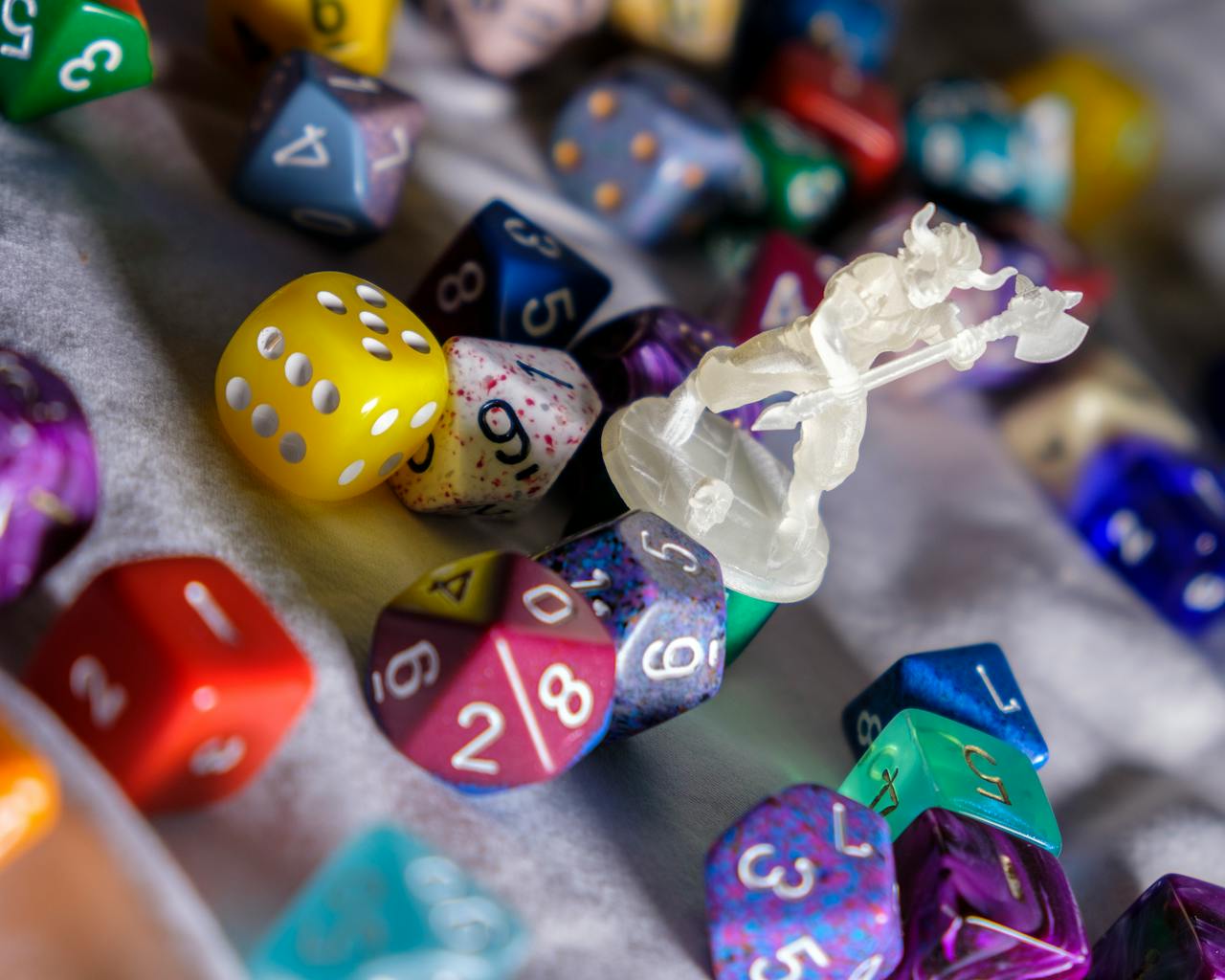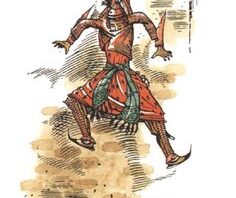Recently I’ve listened to all the currently-released books of two LitRPG series; All the Skills by Honour Rae and the Cradle series by Will Wight. Covers correspond to thermometers:
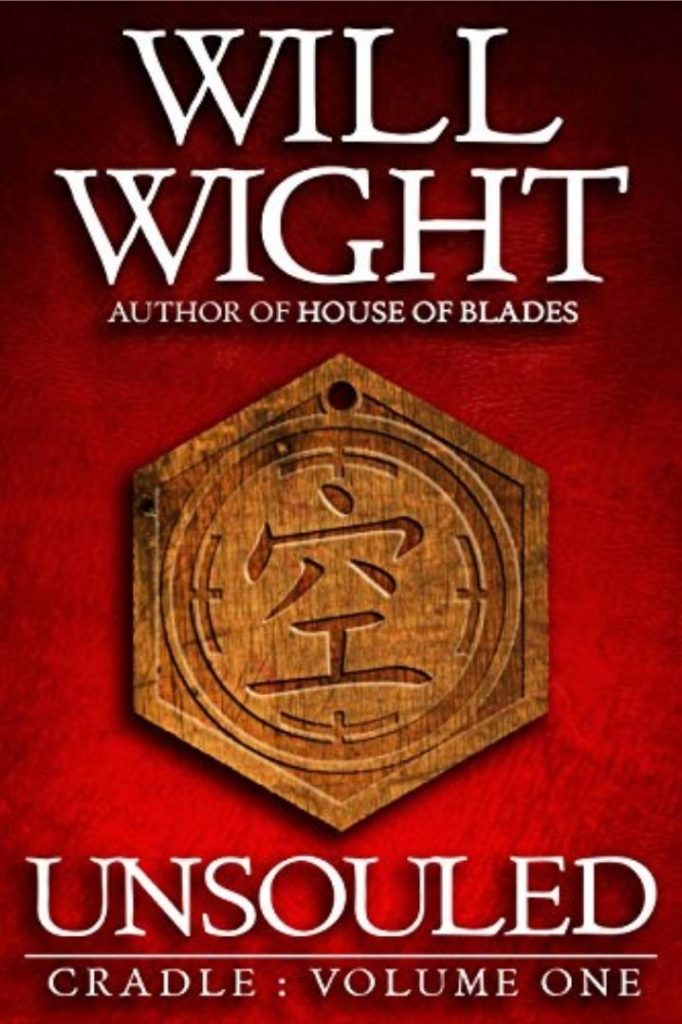
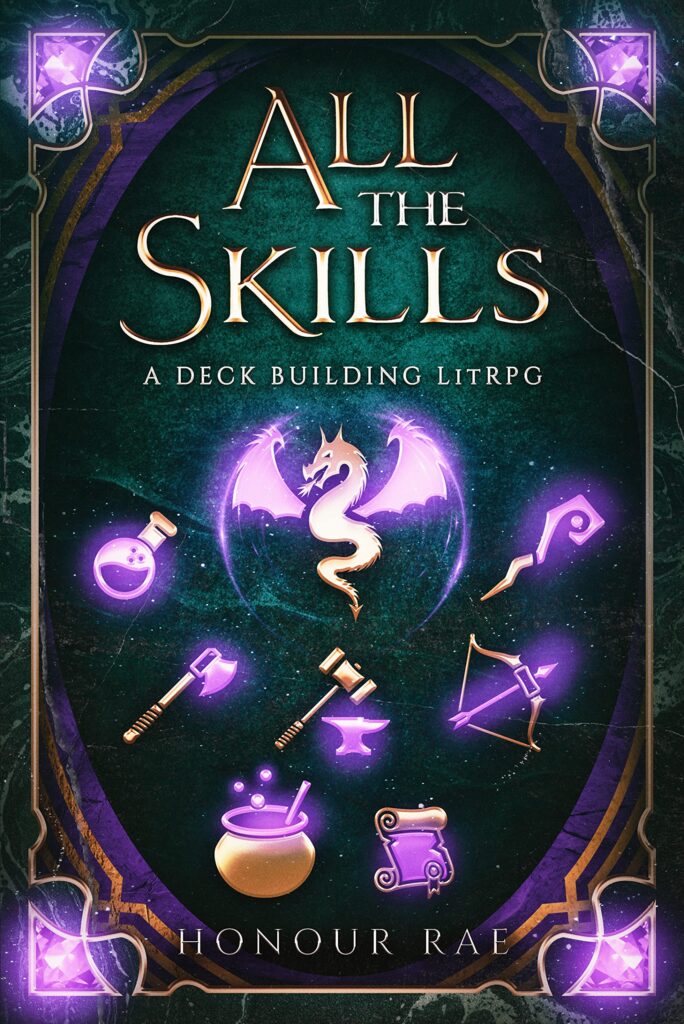
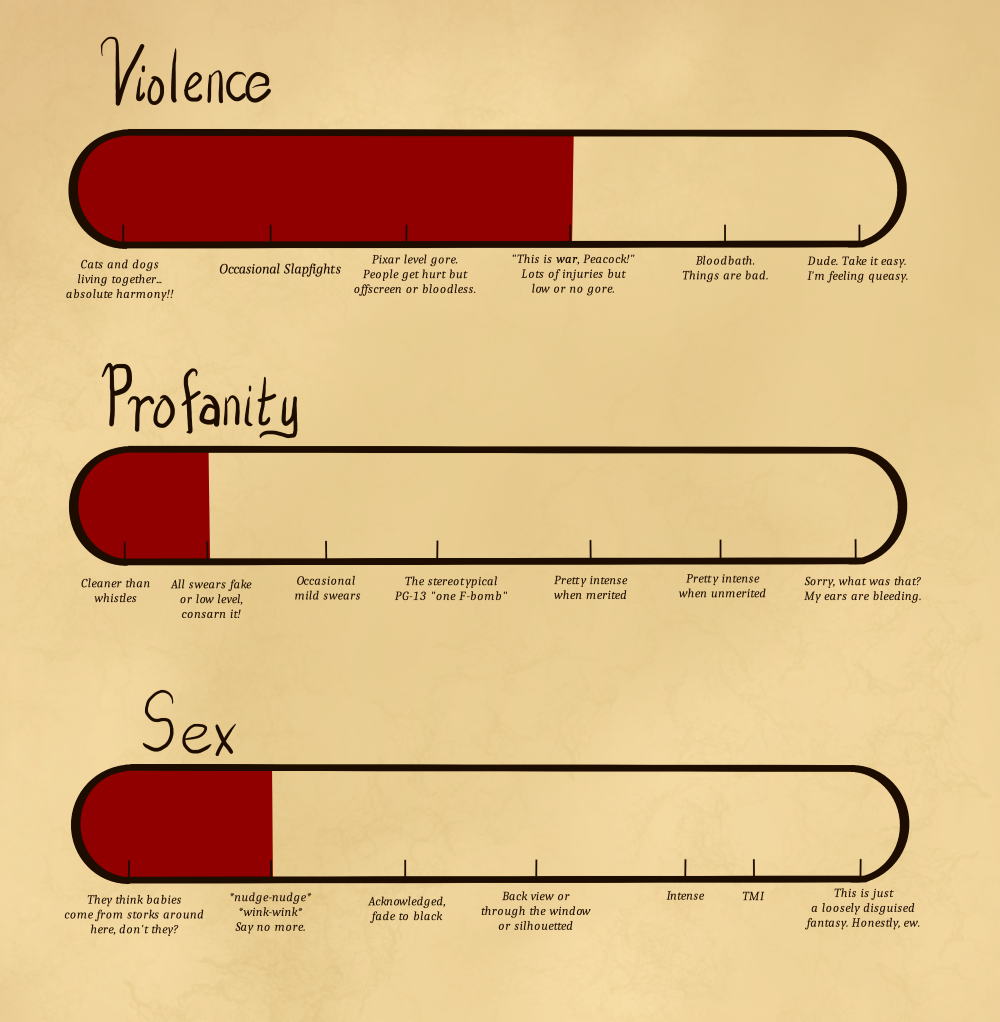
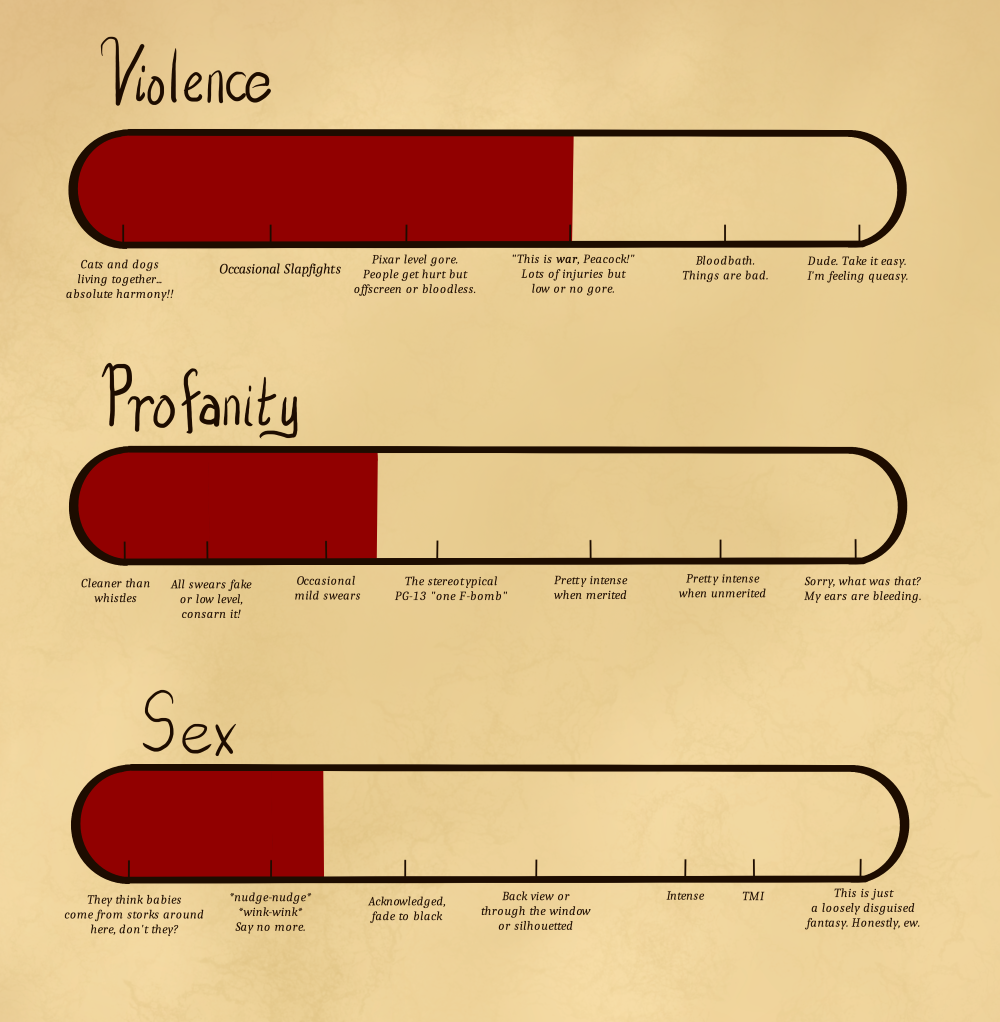
First I’ll describe the genre of LitRPGs as I understand them. RPGs, or Role Playing Games, have existed pretty much as long as there have been games. From tabletop games like Dungeons and Dragons or Pathfinder or even cute ones like Wanderhome to video games like Halo or Skyrim or Stardew Valley… well, the list goes on. Role playing games generally have some sort of skill climbing method; for example, in Skyrim, you can increase your Stealth skill until you’re invisible when standing up behind a 3 foot shrub, or in Pathfinder, as your wizard or gunslinger or ninja might gain new skills when they level up. LitRPGs basically are books that map this kind of leveling ability to a story, making it part of the world.
For example, in the Cradle series, an ordinary person like ourselves would be called Unsouled because we wouldn’t have control over the madra inside our bodies or in the world around us. No one’s unsouled… well, except the main character, but that’s a different story. (Or 13 books of stories…) They learn the Sacred Arts to improve their own control and strength, going from Copper to Iron to Jade and on up, if they don’t live in Sacred Valley. (Guess where the main character lives!) Each increase involves a physical or interior change; going to Iron gives you an Iron Body that cleanses itself of impurities and creates a stable base to build your future on. The main character gains an iron body that heals itself better and is resistant to poison. (Mild spoiler for book 2.) Later increases can affect physical features like giving yourself wings or a permanent cloud that shows your mood or so on.
All the Skills takes a different tack. An ordinary person can gain power by getting a magical card and adding it to their Heart Deck, making them one of the Carded, who all naturally have healthier, stronger bodies that are resistant to disease, even the deadly Scourge plague that ravages the world outside of their pockets of civilization. Each card has a different level, ranging from Common to Uncommon, Rare, Legendary, and Mythic at the top. These reflect the way that many video games have items of varying levels, getting stronger with the difficulty and probability of getting said level. In this world, a person can add about 10 cards to their Heart Deck, which can give them such abilities as lengthening and sharpening their fingernails (/claws if you’re a dragon) to identifying herbs at a glance to unlocking your ability to use magic or to see and improve your own personal stats. Improve your endurance, strength, intelligence, or luck with magic! And don’t worry about reading or comprehension problems; since these are in your heart, you understand them without needing to read.
And, of course, as they’re based off of card games, you can collect sets within the cards, which make them stronger. You can trade them, but pulling something out of your heart is unadvisable. Trading stuff you haven’t attached to or only keep in your temporary card deck is much safer. You can even shuffle them.
So what have I learned from these? (PS, from this point on, I’m going to be talking much bigger spoilers so if you want to read them without spoilers, don’t scroll past the picture.)
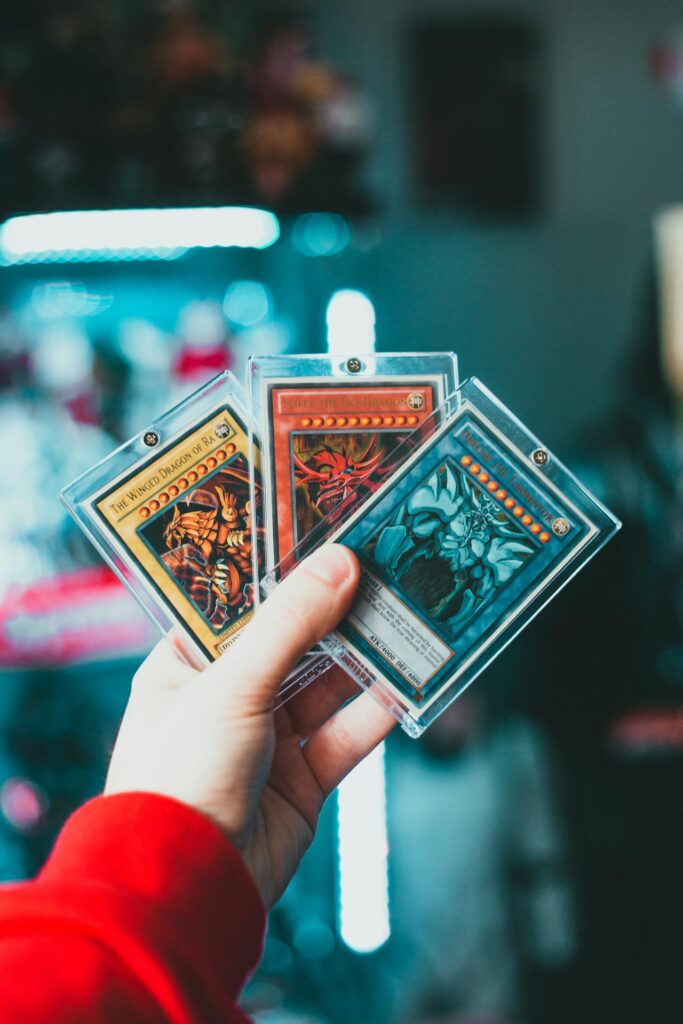
First I want to talk about where they start. Both of them start in an area of low power, and start as low-powered characters within that area. Blank canvases for magic, you could say. For Lindon, the protagonist of the Cradle series, he begins in an area that’s been magically suppressed so people’s spirits can’t reach above Jade level. If anyone of Low Gold or above (it goes Low, High, and then True Gold; then you get into the more esoteric advancements) goes into the place known as Sacred Valley, their power level begins being sapped until they only have the power of a Jade. But even among these lower-powered people, Lindon is weak. His spirit doesn’t have enough madra concentration to make it to copper level, which most kids do by probably ten. He starts the series as a teenager who the others look down on.
For Arthur, of All The Skills, it’s his bad luck to be the son of someone who was sentenced to a border village for his “crimes.” Border villagers work with the scourged lands, working the life-giving dragon poop into land that’s been stripped of even micronutrients by the Scourge. Scourge-tainted dust can kill you and dragon soil that hasn’t been properly aged can give you rapid-onset cancer, so it’s not a great life. Plus you can’t have a card, which would protect you from sickness; you don’t get school; your family can’t leave ever unless a kid who wasn’t sentenced there wants to leave when they turn 18 and not a week later… So, no one there has cards, no one there knows much (or at least doesn’t talk much) about the outside world, and they have little to no contact with them.
And there we have it, two perfect isolated starting zones for our little protagonists. Much like an early starter level in a video game to get you used to the mechanics.
Next I want to talk about the protagonists. Someone who is going to be successful where the world is based on striving for achievements has to be driven. And I don’t just mean “successful” as “making a decent living and is comfortable and fairly safe and secure.” I mean “thriving and making an impact on the world.” And both Lindon and Arthur are incredibly driven. They reach for every opportunity they can reasonably get (even some that are a little extra-legal, if they can justify it as not hurting anyone who doesn’t deserve it).
Both of them are also very clever and use their intelligence and cunning to overcome obstacles that are over their current level of advancement. When Lindon is still Unsouled, he uses his one skill that he discovered to defeat a man at Iron level, rocking him with an unexpected disruption and then knocking him over. When he’s Iron, he beats a Low Gold with poison. And he keeps punching above his weight class with tactics and use of the tools at his disposal throughout the series until he’s literally in a class of his own. Arthur, gifted a card that many would kill for (death being the only way1 to get a card from someone’s heart), keeps it safe and undiscovered from ill-wishers for, what, two whole books? He uses a mixture of misdirection, general caution, and it helps that his card grants him skill abilities and knowledge rather than flashy magic, like his friend who summons bears made of fire.
Both of them are also pack rats. They want to make sure they have what they need on hand, and they collect anything they think might be useful. These help them out of tight spots often. Like a poison stinger when Lindon really needs to not die fighting a Low Gold. They load up packs and pockets and card anchors (the way to access a card’s magic without putting it in your heart) with everything from magical advantages to just basic cooking and camping supplies. Both of them gain access to extra-dimensional storage space, as well, which both of them use very adeptly to stash dangerous items safely, transport friends, and be able to walk without having to go at a snail’s pace thanks to their snail-shell of backpack. Between the two extra-dimensional spaces, I’d rather have access to Arthur’s; things in his do not experience the passage of time which he uses to save perfect-on-the-edge-of-spoiling produce until out-of-season prices give him good returns, or storing a torch so he has fire when he needs it, or cooking a giant pot of soup and then storing it in single dishes that are still steaming later, or storing people (with verbal permission only) to prevent injuries from progressing further until they have access to healing.
That combination of intelligence, drive, and having the right thing to hand, along with heaping helpings of luck for both of them, are what enables them to survive, but what really helps them thrive are their friendships. Neither of them would have gotten far without finding good, reliable friends to aid them. Most of the time, said friends start out with more power or knowledge but often just watch in confusion as these people climb the ranks. Unless Lindon or Arthur both realize that they don’t want to leave their friends behind and also that they will go further with equally strong friends and drag them along in their powerful wake. I could go on but this is already getting long and I’ve got other points I want to hit.
These are both series that go on for a while, and the thing that I think would be most applicable to my writing is the way the series (serieses? What’s the plural of series?) (It’s series.)(I’ve typed the word “series” enough it’s losing meaning, help!) expand their world and create story arcs that carry over more than one book.
In All the Skills, for example, the first book is introductory to the world, the magic, Arthur himself, and its main arc is about how Arthur is dealing with the world he’s now in. The first arc, getting the card and getting himself out of the border land, resolves pretty quickly. But then we need something for the arc of the book, so that the book resolves satisfyingly. So we follow Arthur as he experiences a Scourge Eruption, the main way the scourge infest the world further (in this kingdom), then goes to a dragon hive city where he sees how the Scourge are fought back by the dragons. This all- from Arthur’s home village to his traumatic experience to being saved by dragons- sets up a series-wide arc of saving the world from the scourge. I assume. Book 5 was only recently published and the series isn’t finished yet. But the conclusion of book 1 is his turning from a passive receiver of what the world is throwing at him to taking his own action to make a difference. He takes initiative to fix some wrongs he’s seen. Namely stealing cards from the person who ousted his father from his position as duke (did I mention that his dad used to be a duke?) and taking them back to the village where he takes all the kids he can out and gives them cards, saving at least some of the kids from the same fate he experienced. In the same stroke, he helps his friend bond with said friend’s father’s dragon and gains the second card in his Legendary card set, filling the other promise of the book that he will start getting his own Legendary set and make a difference in the world. Further books in the series expand the world and the role of the dragons; in book 3 he discovers hives that aren’t bound to the kingdom and learns new ways of doing things that can fix some of the dysfunction in his own kingdom, then in book 4 the world expands more as he discovers how things work in another kingdom/citystate2 and gains deeper knowledge about how the greater battle between the Scourge and the Mythic Dragons. Book 5 has him return and start changing things in one of the most dysfunctional hives. Each book has its own goal but also adds to knowledge of the greater arcs and goals and moves those along, though not as quickly.
In Cradle, we see a similar strategy. Each book has their own goal but each also builds on a greater arc to fix the problems in the wider world. Book 1 is only about getting out of Sacred Valley, but spurs Lindon to do so because he sees a vision (from a celestial messenger who can see the general direction of fate, it’s a long story) of his valley being wiped out by an impossible force and wants to stop it. The book leads us to believe that stopping it is the great arc of the series, but we discover as we learn more about it and as Lindon overcomes one challenge after another and increases his level in one book after another (which the books are often titled after) that the reason his home would have been destroyed has to do with great and terrible beasts that only the highest level of Sacred Artist can fight but also they only remain powerful because the most powerful artists refuse to give up power or leave the world to the other people, creating the hunger and power that the great beasts feed on. So the mission becomes finding a way to get those great powerful people to move on (ascending to the heavens or just passing on, choose one) without letting the beasts then tear the world apart.
One other thing I learned? Gamifying things is a good way to provide external motivation. “Improve yourself, get stronger” is fine to say. But showing the improvement? Some way people can see it? It’s a great motivator. Achieve this level in your advancement. Acquire a new card with new skills. Get a hybrid car that shows you your fuel efficiency and brake and acceleration score. The drive to do well on something you can see is real and translates well to providing push for stories.
TL;DR? Long series can be made effective with the following elements: Make a driven protagonist who begins in a place of low power. Give them good friends. Have an idea as an author of the greater problems your protagonists will face; introduce that as part of the world quickly but make it more personal as books progress, while not neglecting actual satisfying arcs in each book.
Oh and also. Most LitRPGs I’ve seen or heard of are self-published. In this wide-open world of publishing that we’re entering, the big difference between a traditionally-published and self-published book is this: One gets edited by professionals. BUT there are so many editors willing to look at self-published authors’ works. If you’re self-pubbing, don’t skip that step. It’s crucial. That can make the difference between an okay book and a stellar book that shines. These books are good! There are a few nits I could pick but I’m not going to because they’re so minor. And you can tell they put effort into getting good covers, getting professional editors, taking it through drafts, and not just calling it good on the first go. It’s more work and you get to do it all by yourself if you’re self-pubbing, but don’t slack off on it. Please. (All of these aren’t going to save a book built on really flawed premises, but an editor can probably tell you that too.)
Intellectual Property of Elizabeth Doman
Feel free to share via link
Do not copy to other websites or skim for AI training
- For anyone but Arthur and his dragon Brixaby, thanks to Brixaby’s card he’s born with. All dragons are born with a card. ↩︎
- Which is also where we find out this is post-apocalyptic and the Scourge were the apocalypse, but at least they gave us magic? Not sure that’s a fair trade for electricity, but, well… I would like a dragon. He shows up in New Houston and learns the language of Texan, a dialect of the dead language English. ↩︎
